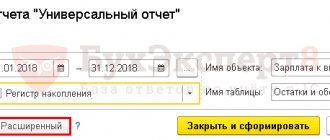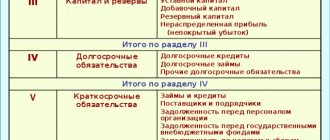Labour Inspectorate
Sometimes it is not possible to pay off the debt this way. In this case, you can continue the fight for your rights by contacting the Labor Inspectorate. This institution is seen as a protector of employee rights.
After the complaint, an investigation will be carried out. In accordance with its results, the Labor Inspectorate will take action. It can not only forcefully collect the amount of debt owed to employees, but also impose penalties on officials and the enterprise. An audit of the company's activities may be initiated. After the appeal has been made, the institution is given 30 days to sort it out and take action.
Completing the application is not difficult. It is written to the boss in free form. The document must detail the circumstances of the case. Your requirements must be justified with relevant documents.
Prosecutor's office
If, from the employee’s point of view, the Labor Inspectorate has not helped, you can contact the Prosecutor’s Office. However, it will conduct an investigation only if it sees elements of a crime. Otherwise, the papers will be sent to the Labor Inspectorate for consideration.
It is allowed to apply to both of these authorities at the same time. However, these authorities will not consider cases where the amount of payments not received by the employee is not agreed with management. In such a situation, it will be effective if the employee files a lawsuit.
When the salary was calculated in the accounting department, but the payment did not occur. The employee in this situation fills out an application. The court, if it agrees with the plaintiff, will grant a court order for the payment of money. This document is handed over to the plaintiff. The manager is given 10 days during which to comply with this order.
The concept of an individual labor dispute
The concept of an individual labor dispute is considered by the Labor Code in Article 138.
In this case, we are talking about the fact that there are disagreements between the employee and the manager related to the scope of implementation of labor legislation.
This concept may include:
- Disagreements in matters of legislation, application of the provisions of the employment contract, collective agreement. In this case, it is necessary that this be addressed to the body responsible for resolving individual labor disputes.
- This includes consideration of disputes that have arisen between the company and a former employee.
- Conflicts that arose during employment fall into this category. For example, situations are considered where a person was wrongfully denied employment.
Such conflicts vary depending on whether they occur with officials or with an organization.
Various procedures may be used:
- A situation where a decision is made in a general manner. In this case, they first turn to the labor dispute commission, then, if a solution is not found, a lawsuit is filed in court.
- In some types of disputes, recourse to court is provided.
- For some types of conflicts, a special procedure for consideration is used. In such situations, the decision is made either by a higher authority or by the court.
The jurisdiction of a particular dispute is established by law. In most cases, appeals are made to the labor dispute commission. It is organized at the enterprise. The commission should include an equal number of representatives of workers and management. Such bodies can operate at the organizational level or be formed in structural divisions. In the latter case, only those issues that are within their jurisdiction can be considered.
The commission is required to have a seal. Material and organizational support must be provided by the company's management.
If there is a need to go to court, the initiator may be an employee, boss or trade union organization.
Limitation period for payment of wages
The law provides that an employee has the right to file a claim for unpaid wages only within a certain period, called the statute of limitations. In different situations, its duration may vary.
In matters related to non-payment of wages, it is 1 year. Time is counted from the moment the violation occurred. If the employee did not immediately learn about the fact of non-payment, then the period begins from the moment he received this information.
This period is established in Article 392 of the Labor Code of the Russian Federation.
When the period is over, it is impossible to go to court on this issue to restore justice. However, an extension of this period is permitted. This can only be done by the court. He will study the situation and, if there are serious reasons, he may decide to extend the period under consideration.
Salary arrears
According to legislative documents, salaries must be paid at least 2 times a month. At the same time, approximately equal periods of time should pass between payments.
Specific dates for the issuance of funds are not specified in the legislation, so each employer assigns them independently and prescribes them in the company’s local regulations.
It is worth considering that if the date of payment of salaries falls on a weekend or holiday, then the money must be provided to employees in advance.
If the dates stipulated for receiving payments are missed, the wages will be considered overdue.
More than 3 months
When deducting wages, an employee must act as quickly as possible and file complaints with various authorities. The fact is that within three months after non-payment, the employee can appeal to the labor commission. At the same time, it is worth considering that the complaint is considered within 10 days.
In case of bankruptcy
In cases where a company is declared bankrupt, non-payment of funds to employees is quite common.
If an employee finds himself in such a situation, he needs to go to court and get a decision to recover wages.
Next, the document must be transferred to the arbitration manager of the organization, who will enter the employee into the loan register.
If you look at the Insolvency Law, you can see that a company declared bankrupt must initially pay debts to creditors due to damage.
Upon dismissal
Some employers, when dismissing employees, deliberately delay the latter's salaries. In this case, it is necessary to go to court, since such dismissal is illegal.
This is important to know: New wage system for public sector employees in 2020
If the court decision is made in favor of the employee, he will either be reinstated to his position, or the manager will be obliged to pay him his salary along with interest.
Recovery after dismissal
A dismissed employee who was not paid upon dismissal has the right to defend his rights. First of all, you need to talk about this with your former boss and try to reach an agreement on the settlement. If this cannot be done, the victim has the right to file a claim in court. If the decision is made in favor of the dismissed employee, he can count on the following payments:
- Full payment of arrears of wages and other payments.
- Article 236 of the Labor Code of the Russian Federation provides that in the event of a later payment of money, the employer is obliged to additionally issue an amount at the rate of 1/300 of the Central Bank rate for each day of delay.
- You can claim compensation for moral damage caused by a delay in payment. The court will determine its amount regardless of the size of the monetary claims. This is provided for in Article 237 of the Labor Code of the Russian Federation.
However, it must be remembered that the time for such an appeal to the court is limited by the statute of limitations, which is equal to one year.
If you miss it, it is permissible to apply for its extension. The court, having considered the situation, may take into account valid reasons for the delay and extend the period. The Plenum of the Supreme Court clarified the situation, giving examples of reasons that can be considered valid for this.
The following may be recognized as such:
- plaintiff's illness;
- caring for a seriously ill relative;
- being on a business trip;
- the presence of an irresistible force preventing the filing of a claim.
You can also file a complaint with the Labor Inspectorate or the prosecutor's office. If they deem it necessary, they will punish the manager, but this does not always lead to him paying off the debt.
The process of calculation upon dismissal has its own peculiarities.
For example, a situation is possible when an employee terminated his employment relationship, but wanted to take the leave entitled to him by law. In this case, all formalities (including payment) must be completed before going on vacation, but the day of termination of the employment relationship will be considered the last day of vacation. The statute of limitations will have to run from this date.
Although the statute of limitations is established by law, the court has the right to refuse a claim on this basis only if the defendant requests it. Therefore, when omitted, usually the plaintiff in the suit does not apply for its extension (when it is omitted), but does this only in response to the specified demand of the defendant.
If it is possible to present written evidence of the former boss’s recognition of his obligations in the matter under consideration, then the period is interrupted and begins to run from that moment. Therefore, one of the ways to extend is to ask the employer to provide a certificate about the amount of debt, which may become the basis for the situation in question. It is important that the date is indicated in the document.
Risks and pitfalls of wage collection
A poorly organized line of defense can lead to a refusal to satisfy an employee’s request to recover wages. Considering that debts can accumulate over several months, a citizen risks losing a significant amount of money.
In addition, there are many pitfalls in the field of salary collection, for example:
- Difficulty in collecting “northern allowances” when the place of work and the location of the employer do not match.
- Impossibility of legal recovery if deadlines are missed.
- The need to prove the fact of an employment relationship in the absence of official employment.
- Concluding not an employment contract, but a civil law contract.
Wage debts have negative consequences for the employer, in particular:
- the organization may be charged not only wages, but also penalties;
- the employee may demand compensation for moral damage;
- the manager can be brought to criminal liability (Article 145.1 of the Criminal Code);
- for non-payment of wages, a company can be fined up to 50,000 rubles, and in case of repeated violation - up to 100,000 rubles (Article 5.27 of the Administrative Code);
- If the employee wins the case, the employer must compensate all his expenses.
Therefore, the employer should not take the dispute to the extreme point. A problem resolved out of court will cost the company much less than litigation.
Employees should act quickly and clearly, avoiding missing procedural deadlines. Do not neglect your rights, otherwise the employer will commit violations in the future.
Legal Petersburg specialists are able to help their clients even in difficult cases. Let's give a few examples.
Example 1
R filed a claim for recovery of wages in court, indicating that his employer - individual entrepreneur D - did not pay the due funds after dismissal of R. D stated that he had paid everything to R, as evidenced by the employee’s signature on the payroll. The lawyer of Legal Petersburg, with the help of handwriting examination, proved that the signature was forged, and D actually did not fulfill his obligations. The court sided with R, collecting a total of 380,000 rubles from D.
Example 2
After her dismissal, Wu learned that her employer had to pay her a bonus of 30% of her salary (“northern” coefficient). With the help of specialists from our organization, U achieved the restoration of missed deadlines and the recovery of 213,000 rubles from the enterprise, despite the active objections of the defendant.
Submit your application
How much compensation can you receive?
A boss who has not paid an employee for wages is obliged not only to repay the debt, but also to pay an additional amount. It is calculated based on the Central Bank rate. At the same time, 1/300 of it, calculated on the amount of debt, is paid for each day. In this case, the date of final settlement is the last day for accrual of penalties.
In addition, recovery of moral damages is allowed. However, to obtain it, you must prove the connection between the problems that have arisen and non-payment, which is usually a difficult task.
The procedure for contacting an employer to repay a debt
Companies are required to pay their employees every six months, with final payment to be made no later than 15 days after the end of the accrual period. If an employer does not comply with this requirement, he is breaking the law and is subject to administrative and, in some cases, criminal penalties.
In addition, in Art. 236 of the Labor Code of the Russian Federation provides for the payment of penalties on the amount of debt by the employer in the amount of 1/150 of the Central Bank key rate for each day of delay. The billing period includes days from the date following the end of the salary payment period and ending with the date of actual payment of the debt.
An employee who is not paid due money more than 15 days after the due date has the right to suspend work. In essence, this is an analogue of a strike, albeit a completely legal one. The main condition is a written warning from the employer about the planned action. It is best to make a written statement in 2 copies and one is given to the employer, and the second with his mark remains with the employee. There is no need to be at your workplace during this period.
The employee is obliged to go to work on the day following the date of receipt of notification of full repayment of the debt owed to him along with penalties.
In this way, the employee clearly makes it clear to the employer about the need to repay the debt. A statement of termination of work significantly speeds up the collection of wages, but at the same time, it is impossible to give a full guarantee that such an approach will give a quick result.









